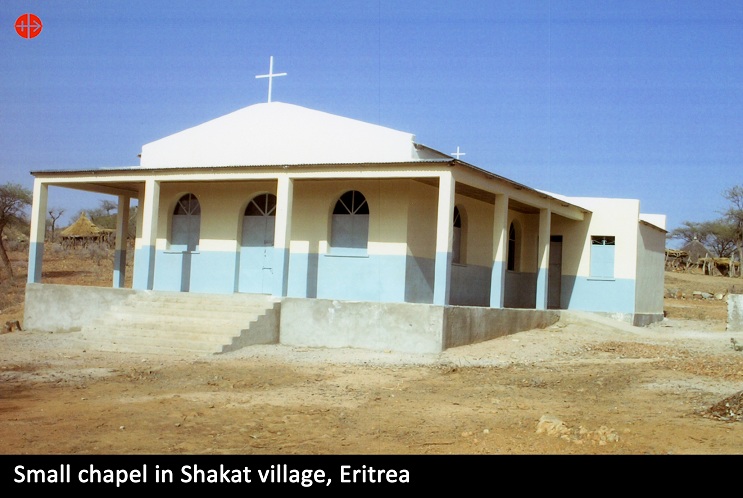ERITREA –
Strict Government control makes it difficult for Church to train priests
A United Nations report shows that the government in Asmara, the Eritrean capital, is responsible for grave violations of human rights. Many people are currently detained and subject to forced labour, while countless others are subject to strict supervision and control.
A source close to the local Church, who for reasons of personal safety cannot be named, told ACN that strict Government control applies to religious communities too. Seminarians are being forced to undergo military service, priests forbidden to leave the country and Christians imprisoned for their faith.
Despite such restrictions on religious freedom, the Catholic community in Eritrea is very active. For example, although Catholics represent barely 4% of the local population in Asmara, the Church runs more than 50 schools and 30 health and welfare centres there. The Church has often spoken out against government abuses. At Easter 2014 Catholic bishops wrote a heartfelt pastoral letter, calling attention to the gravity of the situation in the country, which was forcing a large number of Eritreans to emigrate. “The pastoral letter was greatly appreciated by the faithful of all religions”, the source told ACN. “Many of them told us that we were their one hope. It was impossible not to speak out about what is happening in our country, even though the Church has to proceed with prudence, since otherwise the government might close down our structures.”
The Catholic Church is one of only four religious communities officially recognised by the government, together with the Eritrean Orthodox Church, the Lutheran Church and Islam. Nevertheless, recognition does not guarantee full religious freedom. “On paper we are free to attend our liturgical celebrations, but in reality the government does everything it can to prevent us from doing so”, our source adds. For instance, the authorities often organise political gatherings or sporting events which it is obligatory to attend during Sunday Mass or at the same time as major Christian festivals. “It happened again this year, on Good Friday”, our source said. Also, many school courses are held on Sundays.
The government in Asmara has made numerous attempts to force the Catholic clergy to undergo military service, which is compulsory for all men aged 50 and under and for all women up to the age of 40. Tens of seminarians subsequentlydisappeared and never returned from the period of military service. “Today we do not allow this to happen any more, but the authorities do not allow anyone who has not done military service to leave the country, and consequently our priests cannot go abroad to study” said the unnamed source.
This has important repercussions on religious training in seminaries since it not easy to find qualified academic staff locally. “We have just one teacher of Sacred Scripture; if anything were to happen to him, we would not know how to replace him.” Strict regulation by the authorities is perceived as an attempt to browbeat the Catholic Church into silence. If the clergy were not properly trained because they were forbidden to study abroad, then they could be more easily controlled.
Even worse, as stated in ACN’s most recent report on Religious Freedom Worldwide , there are thought to be at least 1200 Eritrean Christians in prison, many for purely religious reasons. “They are shut up in underground prisons, forgotten by everyone. Not even their families know where they are.” Many of these prisoners have been tortured, among them many Pentecostal Christian leaders, some of whom have already died in prison. Even the Eritrean Orthodox patriarch who was elected by the Church is now under house arrest, after he was replaced by another patriarch favoured by the regime.
The authorities have gone so far as to ban the publication of some documents issued by the Catholic Church that denounce injustice and abuses. Among these is the translation in the Tigrinya language of the compendium on the Social Teaching of the Church, which according to the authorities contains political topics.
ACN Malta





